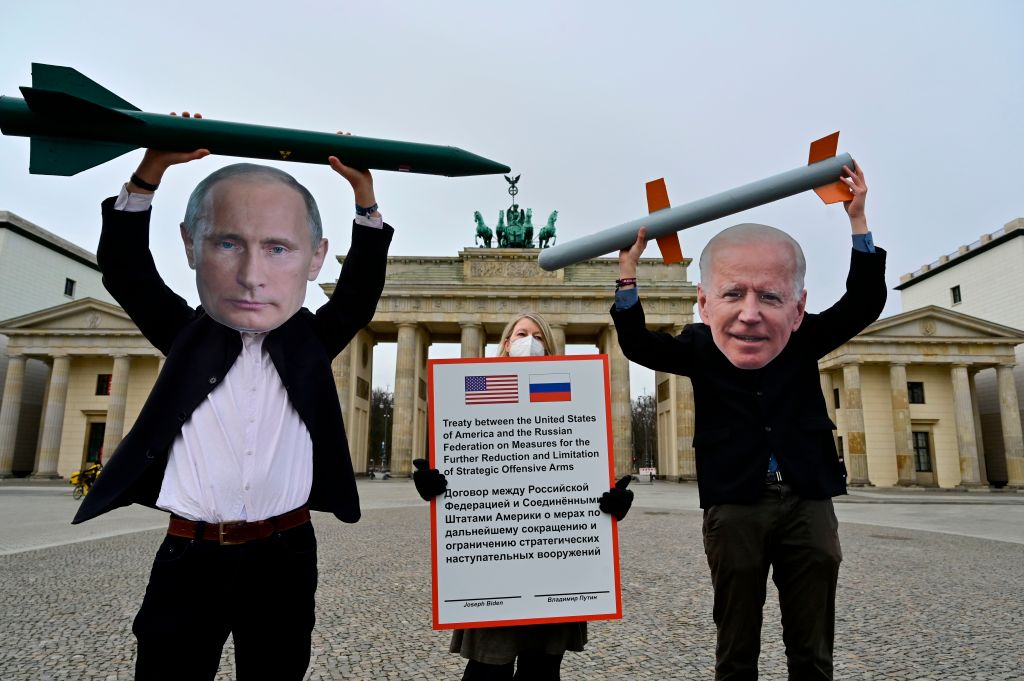Russian foreign minister Sergey Lavrov delivered a depressing assessment on the state of U.S.-Russia relations earlier this month. While holding out a sliver of hope that ties between Washington and Moscow could improve, Lavrov said ‘the confrontation has hit the bottom’. His remarks came a fortnight after U.S. president Joe Biden and Russian president Vladimir Putin scolded one another like two children in the schoolyard, with the former calling Putin ‘a killer‘ and the latter hinting that Biden may be suffering from ill health. Relations, in turns out, weren’t at the bottom as Lavrov thought.
We know this because the dynamics between the U.S. and Russia have only gotten worse in the weeks since. You can excuse someone for thinking U.S.-Russia relations are as bad today as they were in the early 1980s, when the two Cold War adversaries were on the opposite sides of a geopolitical and ideological struggle.
Anatoly Antonov, the Russian Ambassador in Washington, hasn’t been in town for over a month. Meanwhile, America’s Ambassador to Russia John Sullivan is heading home for consultations, days after the Kremlin suggested the veteran diplomat take some time off.
The dynamics between the U.S. and Russia have only gotten worse in the weeks since
Last week, the Biden administration enacted another round of sanctions against Moscow for its alleged interference in U.S. elections and hacking into U.S. networks, freezing the assets of 32 entities and individuals and expelling ten Russian officials. Unsurprisingly, Moscow responded, throwing ten American diplomats out the country, barring eight high-profile U.S. officials from doing business in Russia, and restricting the activities of U.S.-funded NGOs on Russian soil.
All of this tit-for-tat is coming at the same time that Ukraine, constantly under the shadow of its larger and more powerful neighbour, says more than 120,000 Russian troops are now deployed near Ukrainian borders. And then there is the increasingly desperate situation of Alexei Navalny, who was just moved to another prison hospital due to his deteriorating health.
It’s in times of extreme stress when diplomacy is the most difficult but also the most valuable to averting disaster. As much as U.S. and Russian officials are trading rhetorical broadsides, sanctions and diplomatic punishments, both sides appear to understand that giving up on dialogue entirely – as tempting as it may be –will only plunge the relationship to lower depths.
Presidents Biden and Putin are still talking to one another, less to solve problems than to manage their expectations, improve their knowledge of each other, and communicate their many grievances. Biden’s idea of a bilateral summit in the summer, mentioned during their phone conversation, is being actively considered by his advisers. The idea is getting heat from high-profile Russian opponents of Putin and his government, including chess grandmaster Garry Kasparov, who questions why Biden would want to talk with ‘a killer’ about anything. Geopolitics, however, is a messy business that requires leaders to pick up the phone, grit their teeth, and find ways to work together on areas of mutual interest, no matter how time-consuming that work is or how loud the critics may be.
Biden, ever the pragmatist, ran on being tough on Putin and tough on Russia, a nation that he (rightly or wrongly) believed received too much deference during the era of Donald Trump (the facts don’t back this up; it could be argued that the Trump administration, with its diplomatic expulsions, sanctions, and consulate closures, was just as hawkish on Russia as the Obama administration before it).
Yet as the old saying goes, one’s view is often dictated by where one sits. The world through the eyes of a president of the United States can look very different from the world through the eyes of a presidential candidate. While Biden won’t hesitate to punish the Kremlin for meddling with the U.S. political process or for poisoning Russian dissidents, he also won’t hesitate to schedule a call.
‘[T]hroughout our long history of competition, our two countries [the U.S. and Russia] have been able to find ways to manage tensions and to keep them from escalating out of control,’ Biden told the nation during a short address last week. ‘Now is the time to de-escalate. The way forward is through thoughtful dialogue and diplomatic process.’
Indeed it is. For two countries who have over 11,800 nuclear weapons between them, about 90 per cent of the world’s total, the U.S. and Russia really have no other option than to maintain some form of dialogue – however frustrating that dialogue will prove to be.






Comments